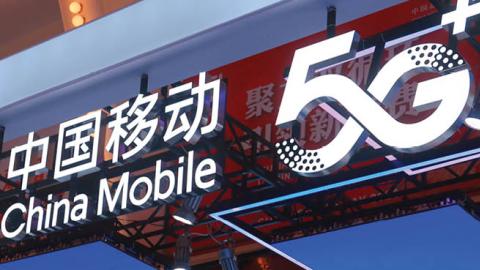It becomes clearer every day that the U.S. and China are involved in a modern-day Cold War. Unlike with the old (and new) Cold War between the U.S. and Russia, the Cold War with China is fought over the future of technology and control of the global innovation economy. Thus, this strategic competition plays out, not on battlefields, but in patent lawsuits in courts in the U.S., China, and across the globe.
The last salvos were fired on March 10, when a bipartisan bill was introduced in the Senate, the _Defending American Courts Act,_ and on February 18 when the European Union filed a complaint in the World Trade Organization. Both the U.S. and E.U. legal actions are responses to China’s misuse of its courts to advance its own nationalist economic policies.
China’s courts now routinely intervene in patent lawsuits filed in U.S. courts and in other jurisdictions. They do so solely to discriminate against U.S. and European innovators in favor of Chinese companies. Instead of deciding fairly the rights of innovators and accused infringers, courts in China set below-market royalty rates for patents on 5G and other technologies that are used in smartphones and other tech products made by Chinese companies like Huawei and Xiaomi.
China’s courts intervene in U.S. patent infringement lawsuits by court decisions that lawyers call “anti-suit injunctions.” These are court orders that shut down a patent infringement lawsuit already filed in a U.S. or European court. In sum, these courts orders mandate that patent owners litigate only in Chinese courts. If the patent owner fails to comply, it faces severe sanctions, including seizure of company assets and tens of thousands of dollars in fines assessed daily.
In two particularly egregious cases, courts in Wuhan, China, issued anti-suit injunctions after ignoring basic due process rights and the rule of law. The U.S. and European patent owners — InterDigital and Ericsson, respectively — were given no notice of the Chinese lawsuits. Nor were they given notice of any of the Wuhan court proceedings that led to court orders that they terminate their properly filed patent infringement lawsuits in the U.S. and in other jurisdictions. This is not the rule law or due process.
This is a raw exercise of power in pursuit of national economic policy. The driving force of these secret proceedings and anti-suit injunctions is China’s explicit governmental policy to advance its own national economic interests in innovative technologies.
Thus, China engages in what seems like a paradox: It offers strong patent protections under its laws, because this promotes its own domestic innovators and tech companies. The Chinese Communist Party has explicitly announced in its most recent five-year plan that technological innovations in 5G, AI, and the Internet of Things, such as self-driving cars, are necessary to its rise as a global superpower.
But when Chinese companies must license patented technologies created by U.S. or European innovators, then China’s domestic policies dictate the opposite result: provide fewer protections to reduce the costs of doing business by its smartphone manufacturers like Huawei, HTC, or Xiaomi. Thus, China’s courts intervene and order the shutdown of patent infringement lawsuits in the U.S. or in other jurisdictions so they can impose a global below-market royalty rate to benefit its own companies.
The Trump Administration recognized that China exploits its laws to “force foreign patent and technology holders to accept below-market royalty rates in licensing and other forms of below-market compensation for their technologies.” The Biden Administration also acknowledges that China “doesn’t play fair” in respecting the intellectual property rights of U.S. innovators.
This is unusual bipartisan agreement between Presidents Biden and Trump. The recently introduced _Defending American Courts Act_ also demonstrates strong bipartisan agreement in the Senate that this is a serious problem. And there is similar international agreement between the U.S. and the EU. The EU states that “Chinese manufacturers request these anti-suit injunctions [from Chinese courts] to benefit from cheaper or even free access to European technology.”
China seeks to dominate next-generation technologies and global commerce, and it is abusing its court system to achieve this goal. The U.S. and EU should stand united against the increasing threat of anti-suit injunctions issued by China’s courts in patent cases. These anti-suit injunctions are a threat to the rule of law that made possible the global innovation economy and today’s mobile revolution.
Read in RealClear Policy




















